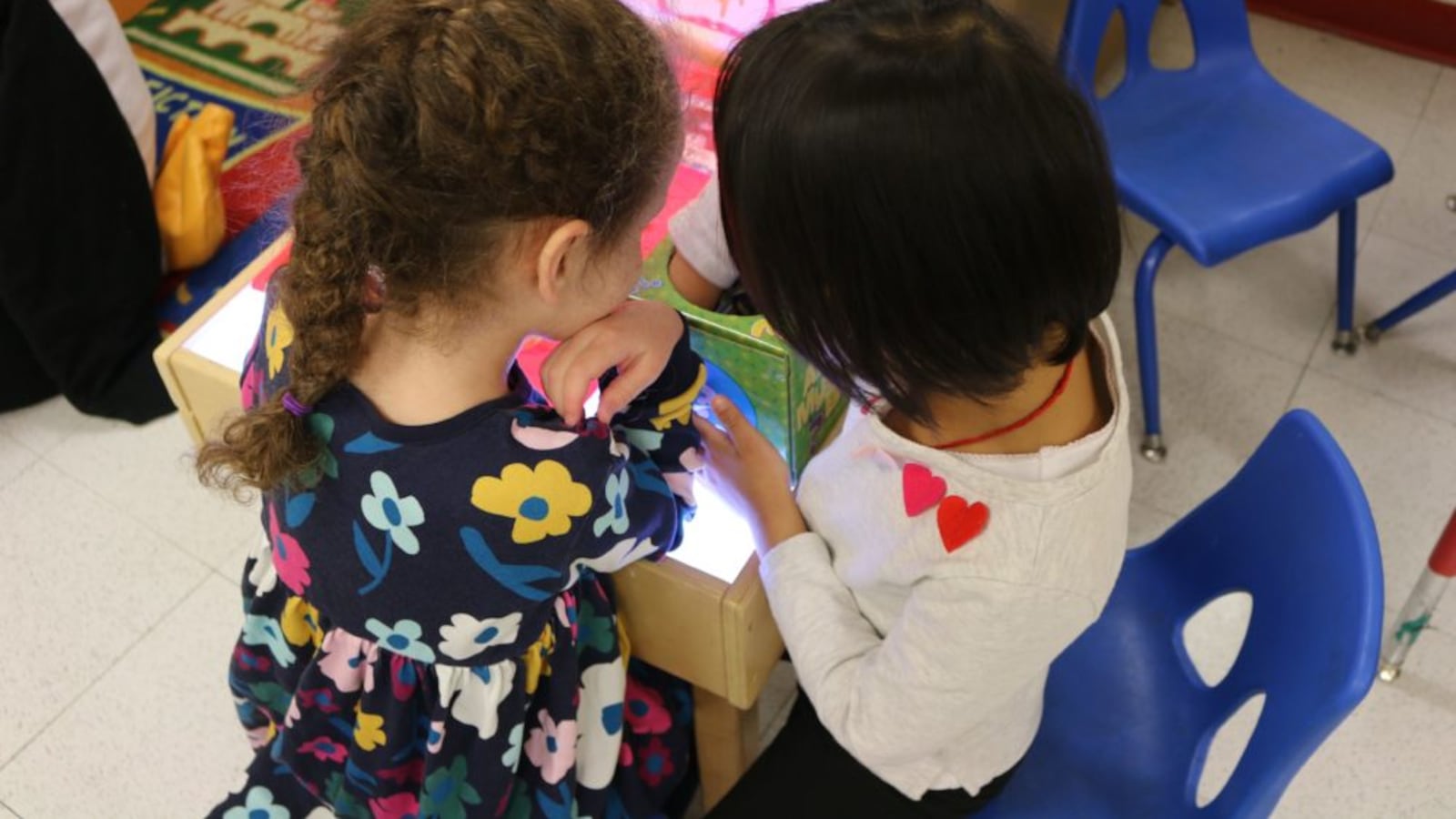Success Academy CEO Eva Moskowitz on Tuesday penned an open letter to New York Mayor Bill de Blasio — calling the city’s pre-K funding model “inadequate” and “inequitable.”
Moskowitz, who runs the city’s largest charter network, said that New York City advantages education department pre-K programs over those run by community organizations. Success Academy also provided an analysis of pre-K spending, showing that city-run programs receive $30,130 per child in public funding, while community-run programs receive about $9,846 per child — numbers the education department said are misleading.
The letter seems to position Success Academy, and its often-polarizing leader, as allies for community organizations providing early childhood education services.
“It is time to provide parity in funding to the city’s independent pre-K programs for the benefit of the organizations that run these programs, the educators that work in them and, most importantly, the 46,000 children they serve,” she wrote.
But shortly after the letter was released, some pre-K providers namechecked in Moskowitz’s letter sought to distance themselves from Success. Moskowitz is one of the mayor’s staunchest political opponents, with a confrontational style that can be controversial even among charter advocates.
The Day Care Council of New York, a federation of early childhood education providers, said their members were surprised to see their names in the letter. So was Grand Street Settlement.
“To be clear, we fully support the issue of funding parity for community-based early childhood providers,” Clovis Thorn, Grand Street’s director of development and communications, wrote in an email to Chalkbeat. “Our concern is that it was presumptuous for Success Academy to include us in their open letter to the mayor because we can speak for ourselves, and this might imply some alignment between Grand Street Settlement, Success Academy, and the charter school movement.”
Universal pre-K, rolled out in 2014, is one of de Blasio’s signature achievements. Most of the students are enrolled in classrooms run by independent community organizations that receive public funding but are not public schools. Those operators have long advocated for bigger budgets to boost teacher pay, arguing they can’t compete with city-run programs in which educators can earn up to 60 percent more.
In her letter, Moskowitz echoes many of those concerns, and she praises community organizations for a “heroic effort.” She also lists a number of pre-K providers by name, calling them “victims” of the city’s unequal funding.
But the education department pushed back, with spokesman Doug Cohen calling the network’s spending analysis “flawed and disingenuous.” He said the network’s figures inflate city spending on the education department’s own pre-K classrooms by including the costs of programs that don’t impact early childhood services. The department also claims that Success’ figures exclude city supports for community providers, such as social workers, skewing the funding numbers downward.
“Pre-K funding is based on a detailed analysis of the specific needs of each program, and we’ll keep working with all our providers so they have the appropriate funding to provide high-quality programs,” Cohen said.
Success argues that the network’s interest in the funding issues lies in the fact that community-run programs help prepare their future kindergarteners for school. But the network also has its sights on launching its own pre-K classrooms.
After a years-long battle with the city, Success recently won a court case that grants charter schools more freedom to run their pre-K programs. Still, charter schools face some of the same funding challenges as community organizations. The New York City Charter School Center estimates charters receive significantly less than their district-run counterparts, amounting to around $10,000 per student in pre-K and $15,000 for older students.

